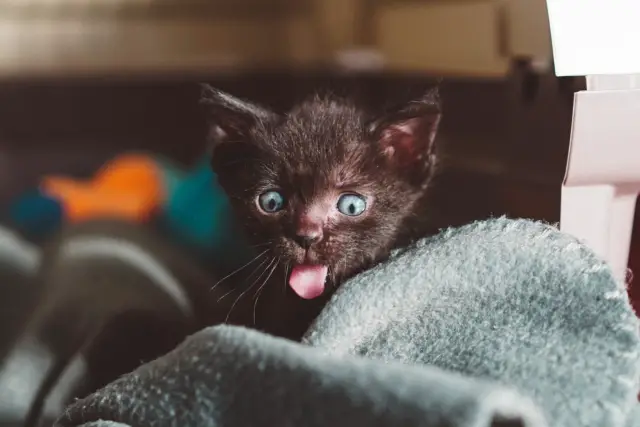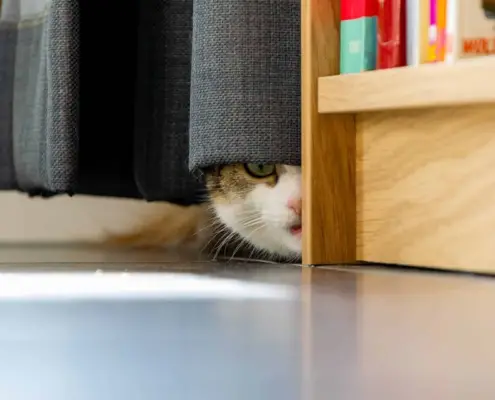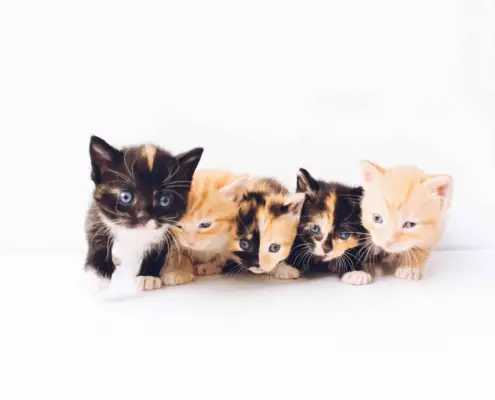
Cats have long been the subject of fascination and mystery. Their enigmatic behavior and unique personalities have puzzled humans for generations. To truly understand our feline companions, it is essential to delve into the intricacies of their brain. By decoding the feline mind, we can gain valuable insights into their behavior, cognitive abilities, and emotional intelligence.
Anatomy of a cat’s brain
The first step in decoding the feline mind is understanding the anatomy of a cat’s brain. While similar in structure to the human brain, there are notable differences that shape a cat’s behavior. The feline brain consists of various regions, each responsible for specific functions. The cerebral cortex, for example, plays a crucial role in sensory perception, motor function, and decision-making. The cerebellum, on the other hand, controls coordination and balance. By comprehending the different regions and their functions, we can better understand how a cat’s brain influences their behavior.
The cognitive abilities of cats
Contrary to popular belief, cats possess remarkable cognitive abilities. While they may not match the problem-solving skills of primates, they excel in certain areas. Cats have excellent long-term memory, enabling them to recall familiar environments and navigate their surroundings with ease. Additionally, they display impressive spatial awareness, allowing them to squeeze into tight spaces or execute precise jumps effortlessly. By acknowledging and appreciating a cat’s cognitive abilities, we can foster a deeper connection with our feline companions.
Understanding a cat’s senses
A cat’s brain is intricately connected to their senses, which play a crucial role in their perception of the world. Their sense of smell, for instance, is significantly more powerful than that of humans, allowing them to detect scents that are imperceptible to us. Feline vision, although not as sharp as ours, excels in low light conditions, making them exceptional nocturnal hunters. Furthermore, their acute hearing enables them to detect the slightest sound, even those beyond the range of human hearing. By delving into a cat’s sensory world, we can gain a deeper appreciation for their unique perspective.
How a cat’s brain influences behavior
The feline brain is the driving force behind a cat’s behavior. It governs their hunting instincts, territorial behaviors, and social interactions. Understanding how a cat’s brain influences their behavior can help us provide them with an enriched environment that meets their natural instincts. For example, a cat’s brain is wired for hunting, so providing interactive toys and play sessions can help satisfy their predatory needs. By aligning our understanding of a cat’s brain with their behavioral patterns, we can create a harmonious and fulfilling environment for both feline and human alike.
The emotional intelligence of cats
While cats are often portrayed as aloof and independent, they possess a remarkable level of emotional intelligence. They can form strong bonds with their human companions and exhibit empathy towards them. A cat’s brain releases oxytocin, the hormone associated with bonding and affection, when they interact with their owners. They can also pick up on subtle cues in human body language and emotions, offering comfort and support when needed. By recognizing and nurturing a cat’s emotional intelligence, we can strengthen the bond between human and feline.
Common neurological conditions in cats
Just like humans, cats can suffer from a range of neurological conditions. Epilepsy, for example, is a seizure disorder that affects cats, causing involuntary muscle spasms. Feline cognitive dysfunction syndrome is another neurological condition that affects older cats, leading to memory loss and disorientation. Identifying and understanding these conditions is crucial for providing appropriate care and seeking veterinary assistance when necessary. By being aware of the neurological challenges cats can face, we can ensure their well-being and quality of life.
Brain development in kittens
The early stages of a kitten’s life are critical for their brain development. During this time, their brain undergoes rapid growth and forms essential neural connections. Providing a stimulating environment with plenty of social interaction, playtime, and exposure to new experiences can contribute to healthy brain development in kittens. It is during this period that the foundation for a cat’s cognitive abilities and emotional intelligence is laid. By nurturing their brain development, we can set them on a path towards a fulfilling and enriched life.
Tips for stimulating your cat’s brain
Keeping a cat’s brain active and engaged is vital for their overall well-being. There are various ways to stimulate a cat’s brain, such as puzzle toys that challenge their problem-solving skills, interactive play sessions that mimic hunting behaviors, and providing them with vertical spaces for climbing and exploring. Additionally, incorporating environmental enrichment, such as hiding treats or creating a cat-friendly garden, can engage a cat’s senses and provide mental stimulation. By implementing these tips, we can ensure our feline companions lead happy, healthy, and intellectually stimulated lives.
Conclusion
Decoding the feline mind is a fascinating journey that allows us to better understand and appreciate our beloved cats. By exploring the anatomy of a cat’s brain, their cognitive abilities, senses, and emotional intelligence, we can create a deeper connection with our feline companions. Understanding how a cat’s brain influences their behavior enables us to provide an enriched environment that fulfills their natural instincts. Additionally, being aware of common neurological conditions and nurturing brain development in kittens ensures their well-being and quality of life. So, let us embark on this journey of unraveling the mysteries of the feline mind, one purr at a time.
If you enjoyed my article, I would appreciate you sharing it with your network.

Sima Ndlebe
Sima writes for CatBuzz. He is interested in Cats, Health and Fitness, and Entrepreneurship.
Published: 30 October 2023



